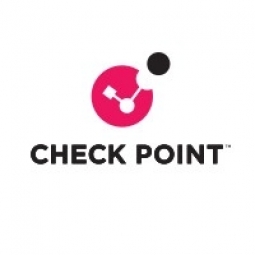Download PDF
Securing Patient Data: Memorial Health Services' Adoption of Check Point Full Disk Encryption
Technology Category
- Cybersecurity & Privacy - Application Security
- Cybersecurity & Privacy - Endpoint Security
Applicable Industries
- Healthcare & Hospitals
- National Security & Defense
Use Cases
- Cybersecurity
- Tamper Detection
Services
- Cybersecurity Services
- Training
The Challenge
Memorial Health Services (MHS), a nationally recognized, not-for-profit health care system with five hospitals in Southern California, was faced with the challenge of protecting confidential patient information. With increasing media coverage on the exposure of confidential patient data, MHS was concerned about a potential data breach that could compromise the security or confidentiality of patient information. As one of the top hospital organizations in the country, MHS is responsible for large amounts of confidential patient information. The growing number of employees working remotely and regulatory drivers such as the Health Insurance Portability and Accountability Act (HIPAA) and SB 1386, a California law regulating the privacy of personal information, necessitated a comprehensive data security solution that could be deployed quickly and transparently to secure the personal health information of its patients.
About The Customer
Memorial Health Services (MHS) is a nationally recognized, not-for-profit health care system with five hospitals located in Southern California, in both Los Angeles County and Orange County. MHS focuses on evidence-based, best practice medicine, thereby gaining widespread recognition for its distinctive approach to medical care. Known for its high standards, MHS is continually recognized for its governance and safety practices by several leading accreditation bodies in the United States. By practicing ground breaking and innovative health care methods, MHS Medical Centers repeatedly exceed state and national averages, remaining a leader in the health care industry.
The Solution
In response to this challenge, MHS adopted Check Point Endpoint Security Full Disk Encryption, a solution recommended by other companies in the health care industry and validated by Gartner’s Magic Quadrant. Check Point Full Disk Encryption supports any PC or laptop running Windows or Linux and offers quick and simple deployment. The solution runs in a completely automatic, transparent mode to the user and ties in seamlessly with MHS’s current IT infrastructure. Administrators did not have to change any procedures or burden staff with hours of training. The solution also provides MHS with the highest level of security by combining strong full-disk encryption with access control and the ability to support all common smartcards and tokens. Only authorized users with the correct logon and password can gain access to a computer. And if the machine is turned off or goes into standby mode, the entire hard drive remains encrypted, protecting all the contents.
Operational Impact
Related Case Studies.

Case Study
Hospital Inventory Management
The hospital supply chain team is responsible for ensuring that the right medical supplies are readily available to clinicians when and where needed, and to do so in the most efficient manner possible. However, many of the systems and processes in use at the cancer center for supply chain management were not best suited to support these goals. Barcoding technology, a commonly used method for inventory management of medical supplies, is labor intensive, time consuming, does not provide real-time visibility into inventory levels and can be prone to error. Consequently, the lack of accurate and real-time visibility into inventory levels across multiple supply rooms in multiple hospital facilities creates additional inefficiency in the system causing over-ordering, hoarding, and wasted supplies. Other sources of waste and cost were also identified as candidates for improvement. Existing systems and processes did not provide adequate security for high-cost inventory within the hospital, which was another driver of cost. A lack of visibility into expiration dates for supplies resulted in supplies being wasted due to past expiry dates. Storage of supplies was also a key consideration given the location of the cancer center’s facilities in a dense urban setting, where space is always at a premium. In order to address the challenges outlined above, the hospital sought a solution that would provide real-time inventory information with high levels of accuracy, reduce the level of manual effort required and enable data driven decision making to ensure that the right supplies were readily available to clinicians in the right location at the right time.

Case Study
Gas Pipeline Monitoring System for Hospitals
This system integrator focuses on providing centralized gas pipeline monitoring systems for hospitals. The service they provide makes it possible for hospitals to reduce both maintenance and labor costs. Since hospitals may not have an existing network suitable for this type of system, GPRS communication provides an easy and ready-to-use solution for remote, distributed monitoring systems System Requirements - GPRS communication - Seamless connection with SCADA software - Simple, front-end control capability - Expandable I/O channels - Combine AI, DI, and DO channels

Case Study
Driving Digital Transformations for Vitro Diagnostic Medical Devices
Diagnostic devices play a vital role in helping to improve healthcare delivery. In fact, an estimated 60 percent of the world’s medical decisions are made with support from in vitrodiagnostics (IVD) solutions, such as those provided by Roche Diagnostics, an industry leader. As the demand for medical diagnostic services grows rapidly in hospitals and clinics across China, so does the market for IVD solutions. In addition, the typically high cost of these diagnostic devices means that comprehensive post-sales services are needed. Wanteed to improve three portions of thr IVD:1. Remotely monitor and manage IVD devices as fixed assets.2. Optimizing device availability with predictive maintenance.3. Recommending the best IVD solution for a customer’s needs.

Case Study
HaemoCloud Global Blood Management System
1) Deliver a connected digital product system to protect and increase the differentiated value of Haemonetics blood and plasma solutions. 2) Improve patient outcomes by increasing the efficiency of blood supply flows. 3) Navigate and satisfy a complex web of global regulatory compliance requirements. 4) Reduce costly and labor-intensive maintenance procedures.

Case Study
Harnessing real-time data to give a holistic picture of patient health
Every day, vast quantities of data are collected about patients as they pass through health service organizations—from operational data such as treatment history and medications to physiological data captured by medical devices. The insights hidden within this treasure trove of data can be used to support more personalized treatments, more accurate diagnosis and more advanced preparative care. But since the information is generated faster than most organizations can consume it, unlocking the power of this big data can be a struggle. This type of predictive approach not only improves patient care—it also helps to reduce costs, because in the healthcare industry, prevention is almost always more cost-effective than treatment. However, collecting, analyzing and presenting these data-streams in a way that clinicians can easily understand can pose a significant technical challenge.






